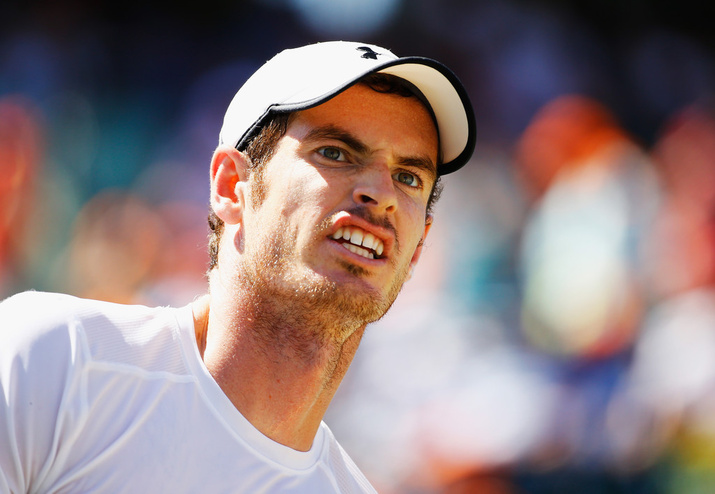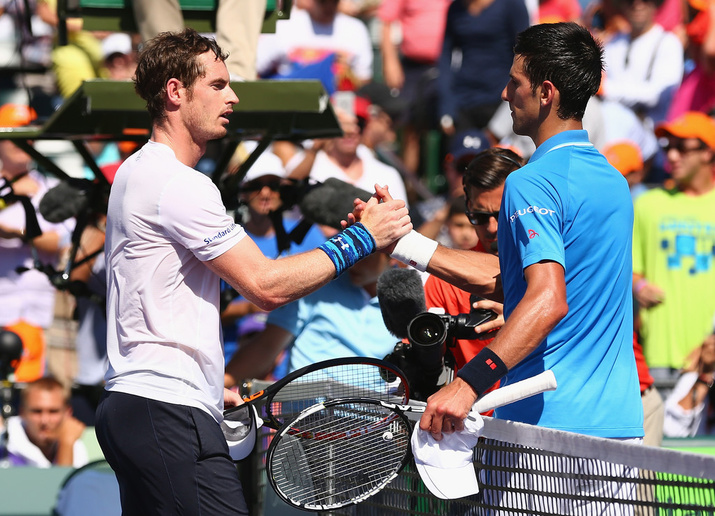Don't miss any stories → Follow Tennis View
FollowAndy Murray and the Importance of Body Language
Fans of the show Seinfeld probably remember the humorous bit Jerry Seinfeld did about how socks are notorious for disappearing in the laundry. It is a scenario familiar to many and one that often leaves the owner with the conundrum of what to do with the remaining odd sock. It does not belong with the other pairs, but nor does it deserve to be discarded immediately. Time is needed to determine if the sock will once again be able to perform its job. Tennis has its own version of this odd sock, and its name is Andy Murray.

Murray has spent the bulk of his career being either the guy to most likely challenge the Big 3 or the junior member of the Big 4. Until he secured his first major at the 2012 US Open and backed it up with a Wimbledon title the following year, most were reluctant to put him in the same league as Roger Federer, Rafael Nadal, and Novak Djokovic. Despite having seemingly cemented his spot in the Big 4 with his two major titles, however, recent puzzling losses already have some analysts and fans removing him from that prestigious group. The question is, why is Murray's stock so quick to drop?
On the surface, it may not seem fair that a number of Murray's losses in the last 18 months have arguably been weighted heavier than those of Federer or Nadal. While there was much talk of Federer’s demise in 2013, many were reluctant to fully commit to removing the Swiss from the Big 4. Likewise, even as injuries kept Nadal out of the game for long stretches and contributed to some stunning defeats, people were not ready to throw in the towel on him the way they seem to with Murray. Of course, some of this is due to the differences in their respective records. Both Federer and Nadal have accrued far more majors than the Scot, and Nadal has even managed to add to his total the last couple of seasons. But perhaps the bigger difference-maker here is their personalities and personas on the court.
Murray's infamous match demeanor is a downright turnoff. He does not exhibit the stoicism of Federer, exuding a kind of quiet confidence that he can get the job done, no matter how tight the situation. He does not often show the positive signs of reinforcement like Nadal, nor the Spaniard's self-deprecating approach to the game. And while like Djokovic he can go off the boil, he never manages to recover as quickly. Nor do we see him frequently crack a smile at the situation like the Serb or demonstrate as much recognition for when an opponent's shot is simply too good. Instead, any little niggle becomes an issue, and he cannot let go of the negatives. This often leads to long and loud discussions with his box and greater distractions.

Most recently, the final in Miami was a prime example of how Murray can get in his own way of success. Throughout the majority of the match, the Scot carried on with numerous negative antics (even when something went well), including frequently yelling at his box. He ended up failing to win a single game in the deciding set, and though Djokovic had something to do with that drubbing, many analysts pointed to all of the energy Murray wasted with his negativity as one of the key reasons that he wilted in the third set. They are likely onto something, too. It is no coincidence that Murray won his two majors with Ivan Lendl. The Czech not only aided Murray in learning how to handle the pressure moments, but he would not put up with the constant yelling. As a result, Murray was forced to better control his emotions and do a better job staying focused on the job at hand. Since Lendl has left his team, Murray has lapsed into the habits that kept him on the cusp of greatness rather than achieving it.
For the sake of the sport, his fans, and for Murray himself, hopefully he will return to the mindset he maintained under Lendl. There is a lot to like about him and his game. He still has ample time to pick up a few more majors, and the runs he has put together in the three biggest events of the season thus far bode well for the remainder of his 2015. Additionally, he is a thoughtful young man, unafraid to speak his mind and stand up for his beliefs. In short, there is plenty there to appreciate, but for people to see that, he has to change what is happening on court. And the first step to doing that is getting out of his own way.










